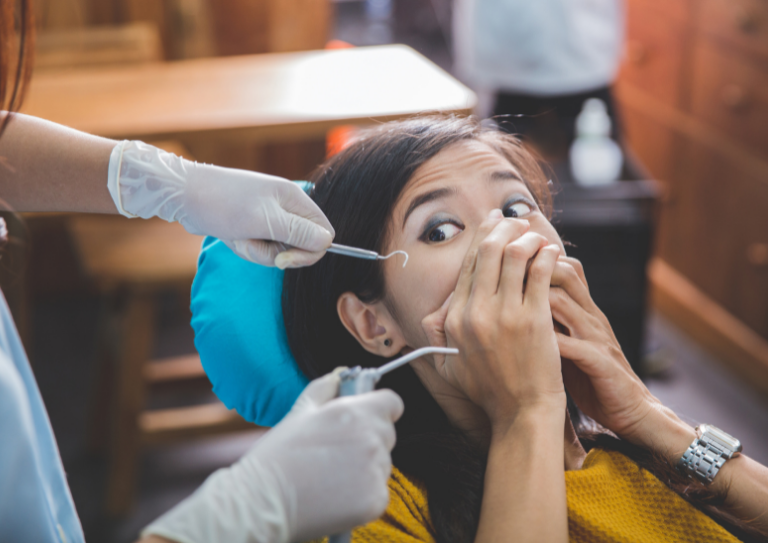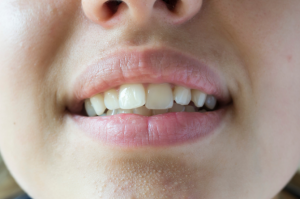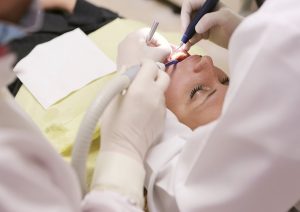Many of us dread going to the dentist. In fact, it’s normal to have some amount of anxiety. Ironically, when I was a child I was scared of the dentist too, because of a particularly painful procedure that I had.
But for some of us, the anxiety and fear may be debilitating to the point that we try to avoid visiting the dentist and seeking treatment even when it becomes necessary.
What is Dentophobia?
Dentophobia or odontophobia refers to the fear of dentists, dental treatment and procedures.
People who suffer from phobias usually try to avoid situations that may trigger the phobia. Hence, while dentophobia is reasonably common and affects people of all ages, it can cause many problems when it comes to a person’s oral health.
In this article, we discuss what triggers dentophobia and how you can overcome it with a little bit of help from us.
Reasons for dentophobia
So when it comes to going to the dentist and getting oral problems fixed, what exactly are people afraid of? To overcome dentophobia and make it easier for us to help you, you need to identify what you are fearful of and why.
Here are some commonly seen reasons for dentophobia:
Fear of injections and needles
In the majority of cases, people are scared of injections and needles.
We have had patients who have cried even before the anaesthetic is administered, because they were so scared of the needle. Once we complete the procedure, though, they are usually fine and relieved that they didn’t feel the pain.
So sometimes, your fear has a lot to do with psychology and painful past experiences.
On our part, we try to be really gentle with the needles. We usually use numbing cream and try to do the injection as slow as possible to have less pressure and no pain.

Fear of the pain during and post-treatment
Different people have different pain thresholds, and even though dentistry has changed a lot now, and we use many techniques that are much more comfortable, some procedures may still involve a slight amount of pain. People might be hesitant to go to the dentist, fearing and assuming that it will hurt later on.
Fear of the sounds
Some people are afraid of drilling, and the noises of the tools dentists use for teeth cleaning and other procedures.
Previous traumatic experiences
In many cases, dentophobia is caused by negative past experiences. If you have experienced a lot of pain and discomfort during, or post dental treatment in the past, your levels of anxiety and overthinking can increase.
Ways to overcome dentophobia: Tips to stay calm
A phobia can have a troubling impact on an individual’s health and wellbeing, and cause stress and anxiety levels to rise.
Given the importance of oral care to your overall health, finding coping mechanisms and techniques to overcome dentophobia is extremely essential. Here are some tips:
Choose the right dentist
Start off with finding a clinic that you are comfortable with. It’s important to be open about why you fear going to the dentist so they are better able to put you at ease.
The right dentist will listen to you patiently and take your fears seriously.
Once you find a clinic or a dentist that you’re comfortable with, it gets a lot easier to go there, especially if he/she becomes a familiar face. Then you don’t get too scared, and are more prepared for the routine procedures.
Use distraction techniques
Distraction techniques are a great way to help you relax. And especially for people who are scared of the sound of the drill, we usually let them know that they can bring their own music.
We also have our own music, so if patients do need some distraction we can put that on to calm them down.
Distraction works well for kids too – we have noticed that when we put on YouTube or cartoons for them, they don’t focus too much on the procedure, and it really distracts them from any notions of pain.

Talk to your dentist before the procedure
It always helps to talk to your dentist about your fears. On our part we try to be extra cautious and gentle, and usually explain procedures before carrying them out. It helps in building a trusting relationship.
You can even work out a physical or vocal signal with your dentist that you can use when you need to “pause” the procedure, or when the pain gets too much.
Discuss pain management options
It helps to discuss the various pain management options that are available to you. For instance, at DP Dental, if you are really worried about the pain, you have the option of getting your wisdom tooth surgery done under IV sedation.
We also have laser technology which can help to reduce inflammation and speed up recovery after wisdom tooth extraction or surgery.
Laser can be used for gum treatment as well – it helps with reducing the post-operative pain rather than numbing, because it reduces inflammation.
Choose a less crowded time
When booking an appointment, it helps to see the dentist at a less busy time of the day, such as the morning hours. When dentists are rushing they’re probably going to be doing things really quickly, and that’s when there’s usually going to be some pain.
At DP Dental, we believe in taking our time, and prioritise taking care of the patient, being gentle, and doing things as slow or as fast as it is comfortable.
The bottom line
Remember that oral health is an important component of your overall well-being. If you are avoiding seeing a dentist because of dentophobia, your dental problems can get worse, and that can make future experiences even more painful and uncomfortable.
Regular check ups are essential to prevent decay and maintain good oral hygiene. They can help prevent significant problems that could cause you pain, difficulty eating, and even losing your teeth.
Avoiding the problem is never a solution. We are always here to listen to your concerns and help you overcome your fear and get the oral care you need.
To book an appointment with us, please call 62820122 or WhatsApp us at (+65) 8057 7381.
Also READ: Your child’s mouth-breathing habit and what you can and should do about It




